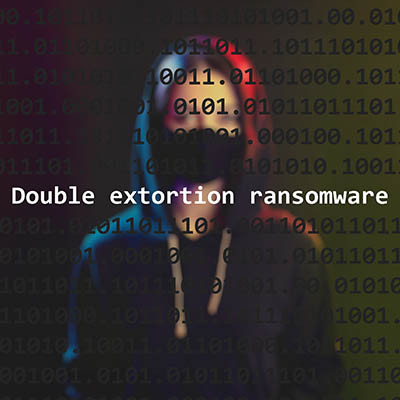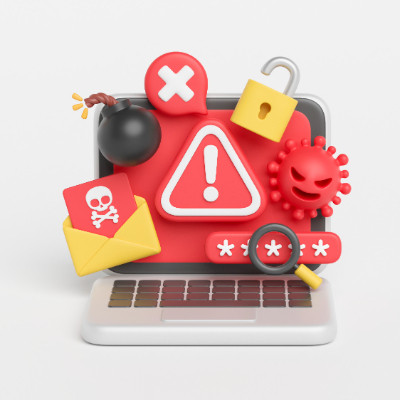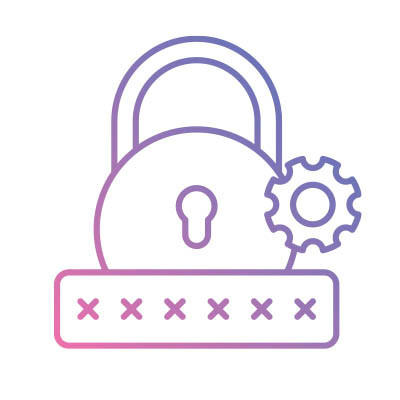Ransomware has emerged as one of the most dangerous modern threats to businesses, and when you consider just what’s at stake with a ransomware infection, you’ll realize we’re not exaggerating. The worst variants of ransomware will attempt to extort you through any means necessary, and when you don’t give in so easily, they’ll pull out the big guns: double and triple extortion.
Argentum IT LLC Blog
They say a man’s home is his castle. We’d contend that a more apt comparison is that someone’s business is more like their castle, realistically speaking.
As such, it is essential to ensure your security in every way possible. Much like a traditional castle was constructed to keep threats out, your business’ security needs to be approached in a similar way.
While we aren’t suggesting that you literally dig a moat or maintain cauldrons full of boiling oil, you do need to implement security measures that serve the same purpose for your business and its network.
In a time when Internet connectivity is so important, manufacturers have met this demand by creating products that feature the ability to connect to apps or other Internet-based dashboards. Unfortunately for users, there is a lot that can go wrong when organizational practices don’t do enough to protect their customer’s privacy; or, simply look to exploit it. Let’s take a look at how the smart devices you depend on can be undermining your family’s privacy.
Nowadays, few things are as universally annoying as the constant stream of spam emails. From ludicrous pharmaceutical offers to urgent pleas for financial assistance from other nations’ royalty, our inboxes can often be likened to a digital landfill. What many people don't realize, however, is that behind this persistent nuisance lies a huge, and shockingly lucrative, industry.
One of the greatest threats to modern businesses is a cyberattack and the consequent data breach. These types of threats often target outdated systems that haven’t been patched or upgraded with fixes to vulnerabilities. Today, we want to go over some of the most likely outdated hardware and software issues you might encounter on your own infrastructure so you can address them and keep your business safe.
With so many devices now connecting to the Internet, decreasing your business’ threat surface area is more important than ever. Your threat surface area consists of any device that connects to your organization’s IT infrastructure, and if you’re not careful or forget a couple of oddball wearables, you could be looking at a data breach. Today, we want to go over how you can prevent that from happening.
Fairly recently, news circulated that a data breach had exposed 16 billion—yes, with a “b”—passwords for various logins, including social media accounts, virtual private networks, corporate tools, and more. Effectively, every online service imaginable was represented in this breach.
This is very bad… arguably unprecedented.
However, this impression is at best misleading. Let’s dig into the truth of the matter, while still acknowledging that there are some lessons to be learned.
When it comes to cybersecurity, businesses have a lot to keep tabs on—even a small business like yours. In fact, you wouldn’t believe just how much goes into cybersecurity and why your organization needs to make it a priority. Today, we want to convince you that cybersecurity is more than just a buzzword on the Internet; it’s a lifeline that will keep your company secure.
Technology is meant to be the wind in your business' sails, propelling you forward, simplifying tasks, and making operations smoother than a freshly paved highway, right? Sometimes, it is! Other times, it feels more like a mischievous gremlin has been let loose in the engine room, and certain seemingly small habits can escalate into full-blown operational nightmares.
Here at Argentum IT, we've seen a pattern or two. Today, let's shine a spotlight on three common technology missteps that might be silently sabotaging your productivity or even worse, leaving your digital doors wide open.
Third-party vendors are essential for modern businesses, as they deliver mission-critical resources and tools to the organizations that utilize them, including raw materials, software, and other services. Unfortunately, these vendors can also serve as direct lines into your business for a cyberattack to take advantage of for their own purposes.
Let’s talk a little about how you can still lean on your vendors without sacrificing your all-important security.
The constant chatter about cybersecurity can really be overwhelming. While some Internet tales might be exaggerated, the reality is that these cybersecurity risks are a serious concern for every business. Is your organization truly prepared to confront the sophisticated digital adversaries of our time? Let’s take a look at three prevalent cyberthreats that could inflict significant damage on a business, and what you can do to keep them from negatively impacting yours.
We're all busy. Whether you're steering the ship or making sure the daily operations run smoothly, cybersecurity might feel like another drain on your time. Imagine a day when everything grinds to a halt, trust evaporates, or significant money vanishes into thin air. These aren't abstract fears; they are all-too-real consequences of cybersecurity oversights, creating moments that everyone in a business, from top to bottom, desperately wants to avoid… and can.
Technology is woven into almost everything we do, from collaborating on projects to connecting with clients. Making sure we handle this technology correctly is important for the efficiency and security of your entire business. In this month’s newsletter, we just wanted to go through a couple of actions that can help any professional improve their technology.
There are a few occasions that we get a very apparent example of how important basic cybersecurity is, regardless of where you are, and this year’s National Football League draft is one such example.
For those who don’t follow the NFL or the draft proceedings, multiple draftees received prank calls during the process, although one in particular is applicable to businesses of all kinds. Let’s examine this situation to reinforce a few critical cybersecurity best practices.
The world of cybersecurity is in constant flux, demanding that organizations continually reassess their defensive strategies. A traditional focus solely on preventing breaches, while important, is proving insufficient in the face of sophisticated and persistent threats. As highlighted in a recent Illumio podcast episode, "Trust & Resilience: The New Frontlines of Cybersecurity," the very foundation of digital interaction—trust—has ironically become a primary vulnerability exploited by attackers. This necessitates a fundamental shift in perspective.
If you're like many small and medium-sized business owners, you're juggling countless online passwords… for email, banking, software, supplier portals, and more. It's overwhelming! This often leads to using simple or repeated passwords, which unfortunately opens the door to cyber threats like data breaches, a serious risk for any business. Thankfully, there's a straightforward solution: a password manager.
Bring Your Own Device, or BYOD, is a common approach for businesses that want to take advantage of mobile technology to kickstart productivity. Instead of supplying each individual employee with company-owned devices, businesses allow employees to use their own devices for work-related purposes. While this is great on the budget, it’s only really effective (and safe) if the employee prioritizes security on their devices; otherwise, it’s a liability.
It should come as no surprise that cybersecurity is a big challenge for businesses and individuals alike. The problem: life pretty much revolves around being online these days, so there’s no avoiding it. Therefore, it’s your responsibility to ensure that any data you collect from your customers, employees, and other key stakeholders in your business is well-protected, otherwise you will face severe consequences.




















